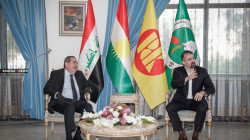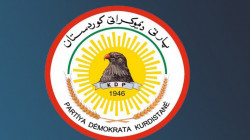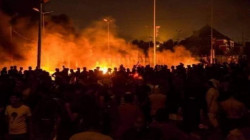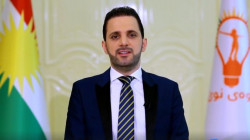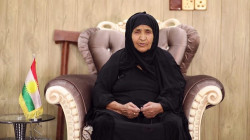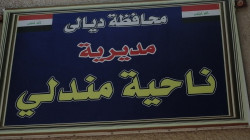45 years since the passing of the "father of the Kurdish cause"
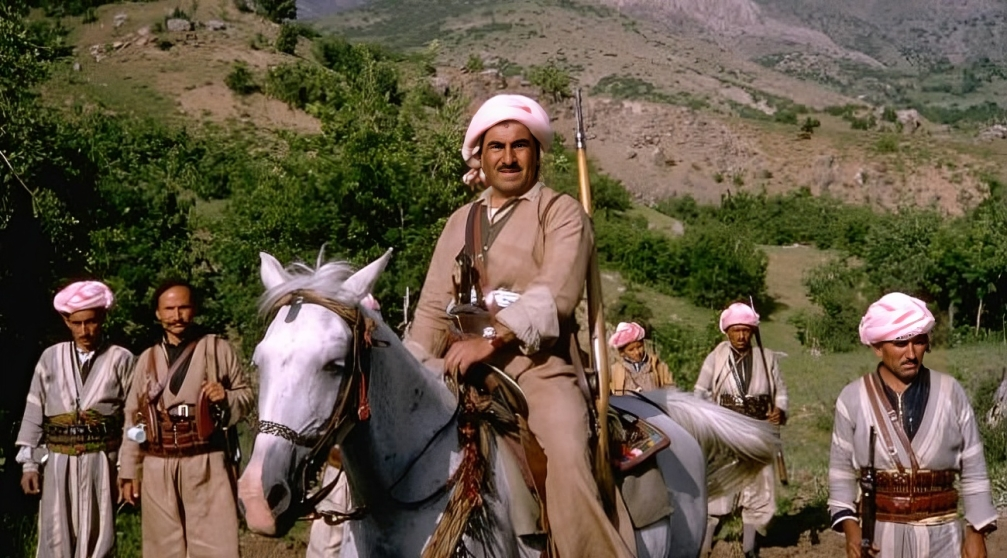
Shafaq News / Today marks the 45th anniversary of the passing of the historical Kurdish leader, Mullah Mustafa Barzani, and yet his legacy remains strong in the collective memory of the Kurds, especially as an integral part of the decades-long struggle for the Kurdish cause that led to the birth of the Kurdistan Region.
Mullah Mustafa Barzani's paths were not easy, neither in politics and diplomacy nor in military operations and negotiations for peace and settlements.
Despite his passing on March 1, 1979, while undergoing treatment in an American hospital, with his son Masoud Barzani, leader of the Kurdistan Democratic Party (KDP), by his side, his influence still resonates in the governance and security affairs of the Region to this day.
In the collective memory of the Kurds, Mullah Mustafa is the spiritual father of the modern Kurdish movement and founder of the Kurdistan Democratic Party. Even the Patriotic Union of Kurdistan (PUK), which later emerged as a competitor in the Kurdish arena, originated from within the ranks of the KDP in 1975.
For many Kurds, Mullah Mustafa's personality and journey serve as a unifying force and genuine inspiration throughout the 20th century for the Kurdish struggle.
His symbolic and tangible journey on foot for 50 days, after the failure of the Mahabad Republic experiment in 1945,, heading towards Soviet territories, marked the beginning of a new era of struggle.
This era, as described by the BBC History magazine in 2021, portrays the Kurds as the largest nation without a state. After World War II, the first stage of a cohesive Kurdish national movement emerged, despite their existence as a nationality for centuries prior.
It is known that Mullah Mustafa remained in the Soviet Union until the revolution toppled the monarchy in Iraq, established by Britain in July 1958. He then returned from exile to lead the KDP, which attracted a diverse group of intellectuals, activists, nationalists, leftists, and conservative tribal leaders.
Russian researcher Anna Borshchevskaya published a study in 2023 titled "Russia and the Kurds: A Soft - Power Tool for the Kremlin", stating that despite the rapid fall of this republic, Kurdish nationalist figures remained committed to the idea of their own state, including Mullah Mustafa, who founded the KDP in 1946. After the republic's fall, Barzani and his comrades sought refuge in the Soviet Union, where the leader Barzani stayed for over a decade before returning to Iraq, where he led a revolution against the central government.
Mullah Mustafa worked towards the hope that emerged after the fall of the monarchy in Baghdad, especially through negotiations with Abdul Karim Qasim. However, these negotiations collapsed later, as he sought to secure Kurdish rights in the post-monarchy constitution, including making Kirkuk the "capital" of Kurdistan. The conflict then shifted to the military field between the two parties.
Even with the fall of Qasim's regime in 1963, Mullah Mustafa's options did not improve, as subsequent regimes in Baghdad treated the Kurds with the same hostility, despite the ongoing negotiations that Barzani attempted to conduct.
This situation persisted until the historic settlement with the Ba'athist regime that seized power in Baghdad in 1968, where an agreement was reached with the regime's second man at the time, Saddam Hussein, in March 1970, known as the Autonomy Agreement for the Kurds.
However, the Shah of Iran's agreement with the Baghdad regime at that time to redraw the Shatt al-Arab border by offering Iraqi concessions, and the Shah's pledge to withdraw his support for the Kurds under the "Algiers Agreement", reopened the door to war on the Kurds.
Large Iraqi military forces moved to attack Kurdish villages and areas, forcing over 200,000 Kurds to flee towards Iranian territories.
At the same time, Washington was trying not to provoke its ally, the Shah, and ignored his agreement with Baghdad, failing to prevent the large-scale attacks on the Kurds.
After the Algiers Agreement in 1975, Mullah Mustafa left Iraq to Iran and then to the United States, where he underwent treatment at George Washington Hospital before passing away on March 1, 1979.
